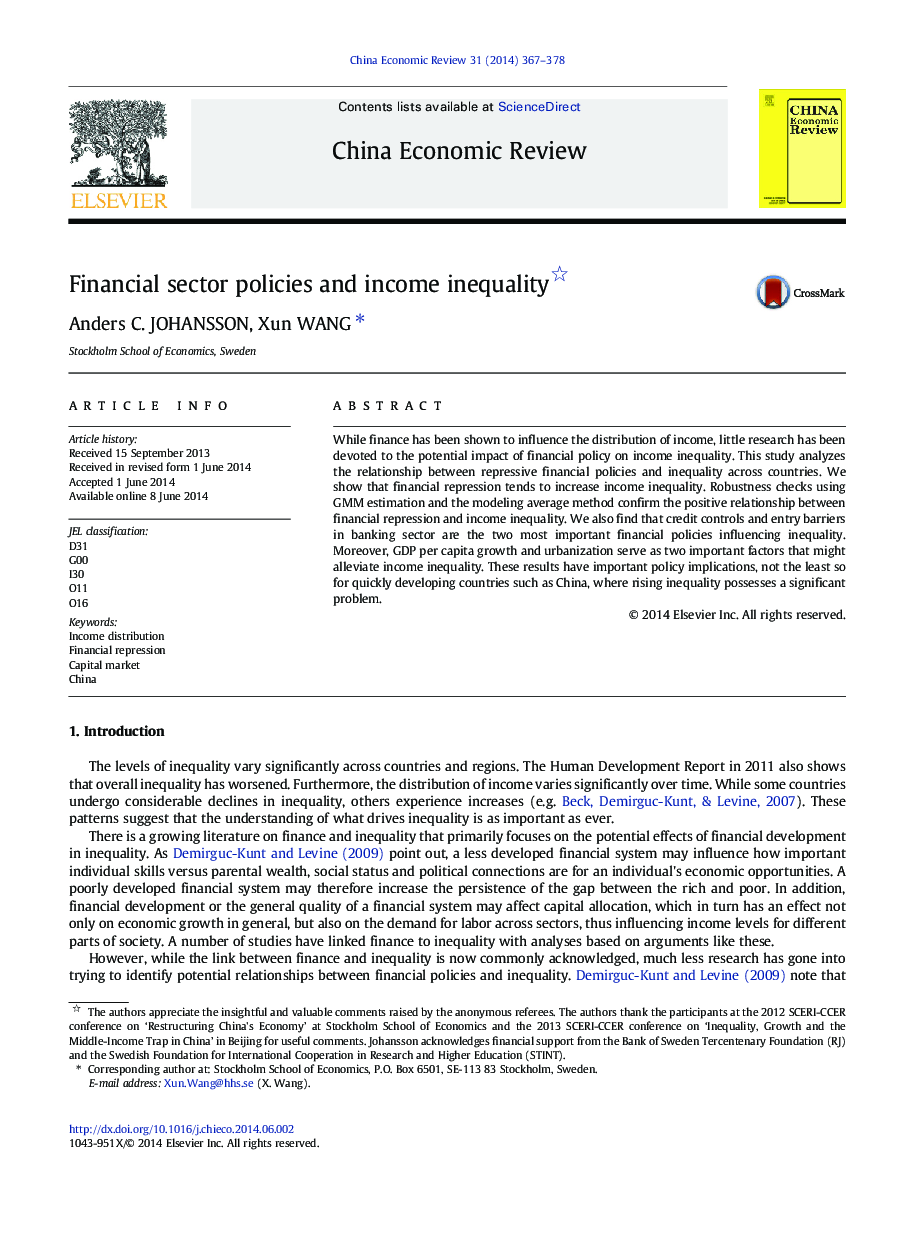| Article ID | Journal | Published Year | Pages | File Type |
|---|---|---|---|---|
| 5047557 | China Economic Review | 2014 | 12 Pages |
â¢We examine the effect of financial sector policies on income distribution.â¢Financial repression tends to increase income inequality.â¢Credit controls and entry barriers in banking sector are the two most important financial policies influencing inequality.â¢The effect of GDP per capita growth varies with initial income inequality.â¢Urbanization serves as an important factor that might alleviate income inequality.
While finance has been shown to influence the distribution of income, little research has been devoted to the potential impact of financial policy on income inequality. This study analyzes the relationship between repressive financial policies and inequality across countries. We show that financial repression tends to increase income inequality. Robustness checks using GMM estimation and the modeling average method confirm the positive relationship between financial repression and income inequality. We also find that credit controls and entry barriers in banking sector are the two most important financial policies influencing inequality. Moreover, GDP per capita growth and urbanization serve as two important factors that might alleviate income inequality. These results have important policy implications, not the least so for quickly developing countries such as China, where rising inequality possesses a significant problem.
